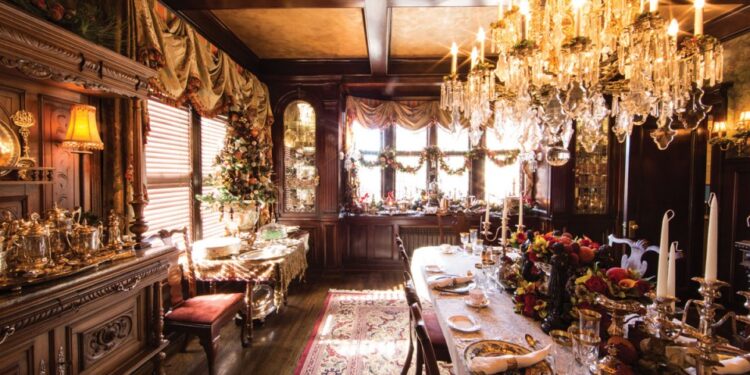While Omaha novelist Timothy Schaffert’s The Swan Gondola is a love story, its most central character is perhaps neither lover, but their whereabouts: The 1898 Omaha World’s Fair. It’s the lush, historically anchored details of that time and place that allow the novel to so masterfully transport readers to another world — one of supernatural shimmer, carnival-style magic, soothsayers, snake oil salesmen, and entrancing mystery.
The Swan Gondola tells the story of Ferret Skerritt, a vaudeville ventriloquist, and Cecily, a traveling actress, who fall in love at the Fair but face complications when Omaha’s richest man targets everything Ferret holds dear.
“It’s a romantic fable, but also a portrait of an American city at the turn of the century, and of the entertainments that distracted from the rough-and-tumble nature of the developing West,” says Schaffert.
Schaffert penned four other novels, including Devils in the Sugar Shop (chosen as a New York Times Book Review Editor’s Choice) and The Phantom Limbs of the Rollow Sisters (winner of the Nebraska Book Award and currently being adapted for film). He is also a professor at University of Nebraska-Lincoln and director/founder of the (downtown) Omaha Lit Fest.
The Washington Post called The Swan Gondola, “ … a highly atmospheric entertainment, full of plot twists, historical flavor and paranormal romance,” adding that “Beneath the intrigue, mystery and historical window dressings of The Swan Gondola beats the heart of a complicated love story.” It has garnered several comparisons to Water for Elephants and has Library Journal saying that it’s time for Schaffert “to become a household name.”
“I was initially captivated by the Fair itself, and the photographs in the archive of the Omaha Public Library. The characters evolved from my research into 1890s Omaha,” says Schaffert.
Although he’d done research for previous works, Schaffert says he’d never had to “learn my way around a whole other world” when developing his earlier novels. In his exploration of 1890s Omaha, he read then-contemporary daily newspapers, such as the Omaha Bee, and journals, like The Omaha Clinic, to learn about customs, technology, fashion, politics, and medicine of the time. He also loves hearing from folks with family who attended the Fair and he even created a Swan Gondola tumblr site, archiving and sharing artifacts of the era.
“I love the role that live entertainment — theater, vaudeville, opera, street musicians, magic, spiritualism — played in the American culture in the 1890s,” says Schaffert. “As a matter of fact, I’m writing another novel set partly on the vaudeville stages of Omaha. Ultimately, I hope for The Swan Gondola to provoke readers, particularly readers in Omaha, to take more interest in the histories of their cities.”














